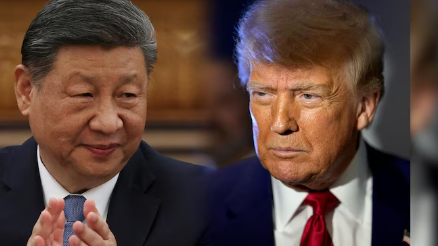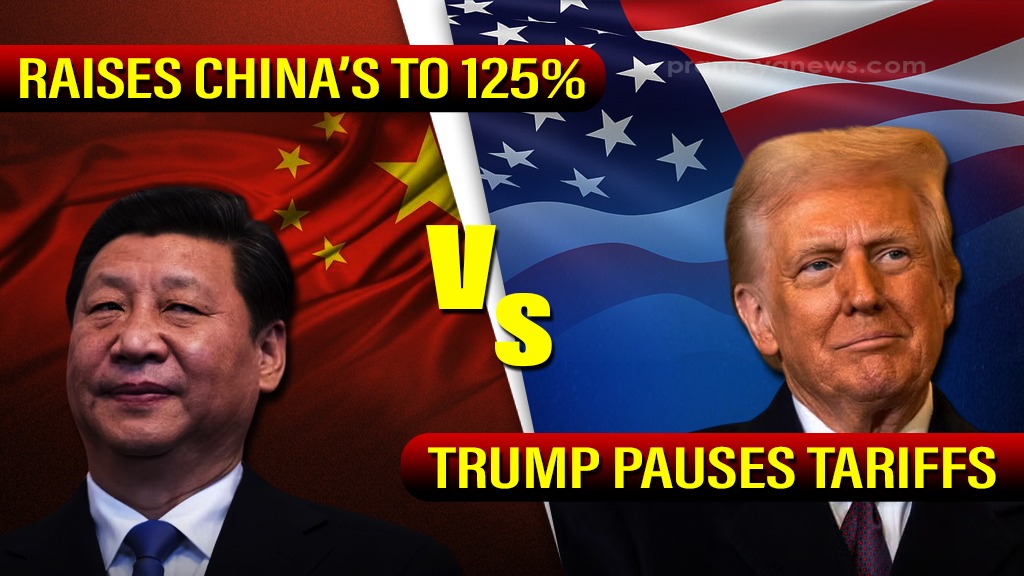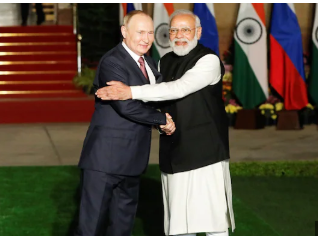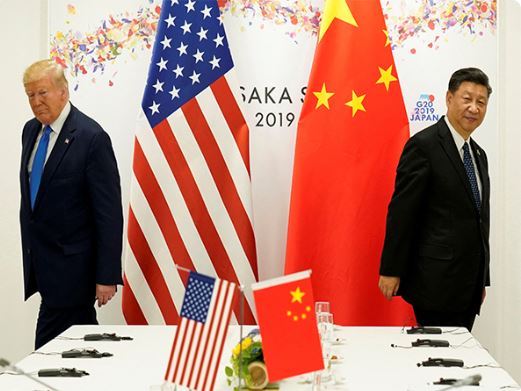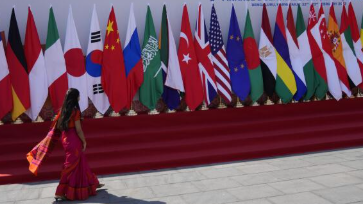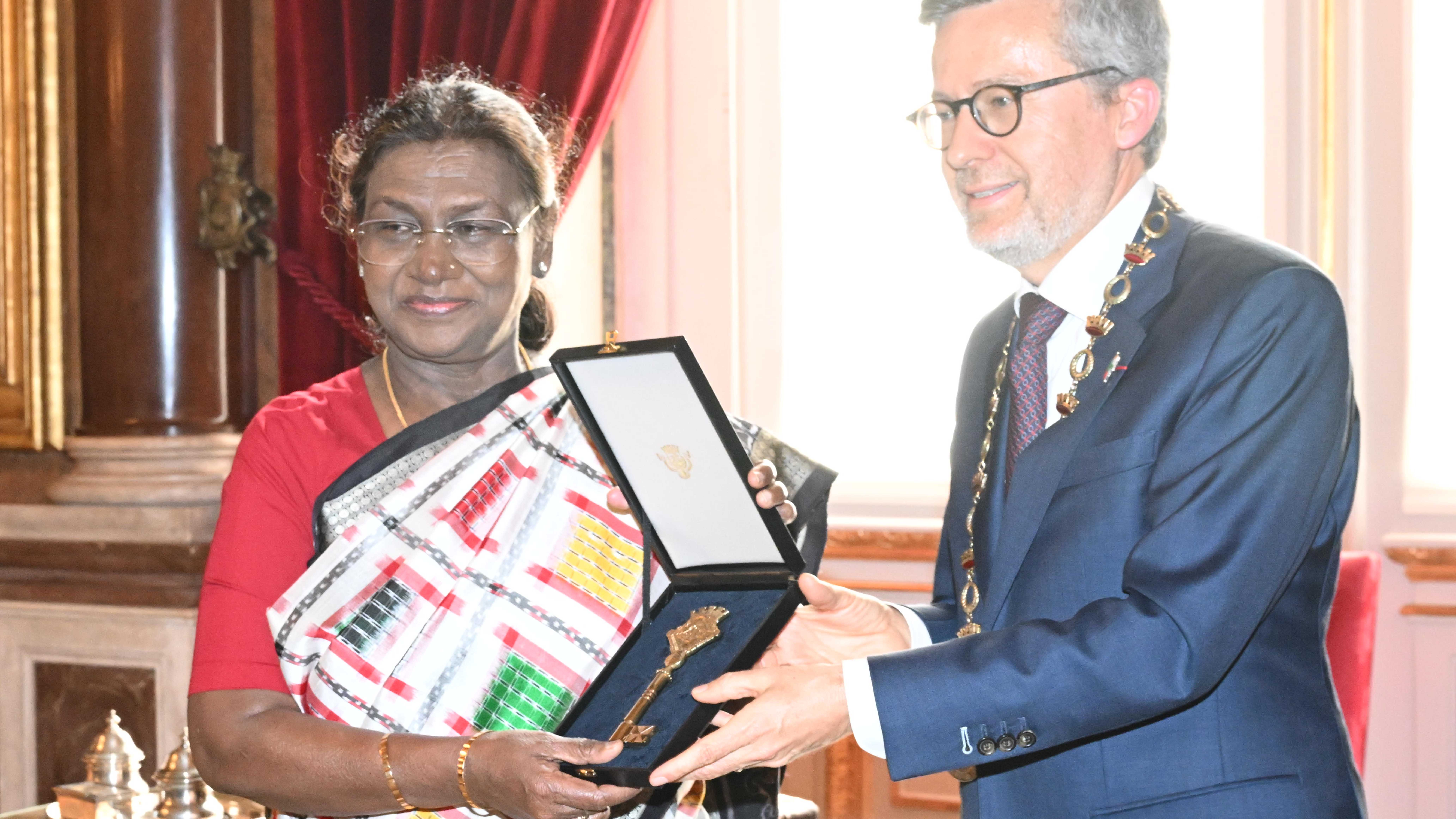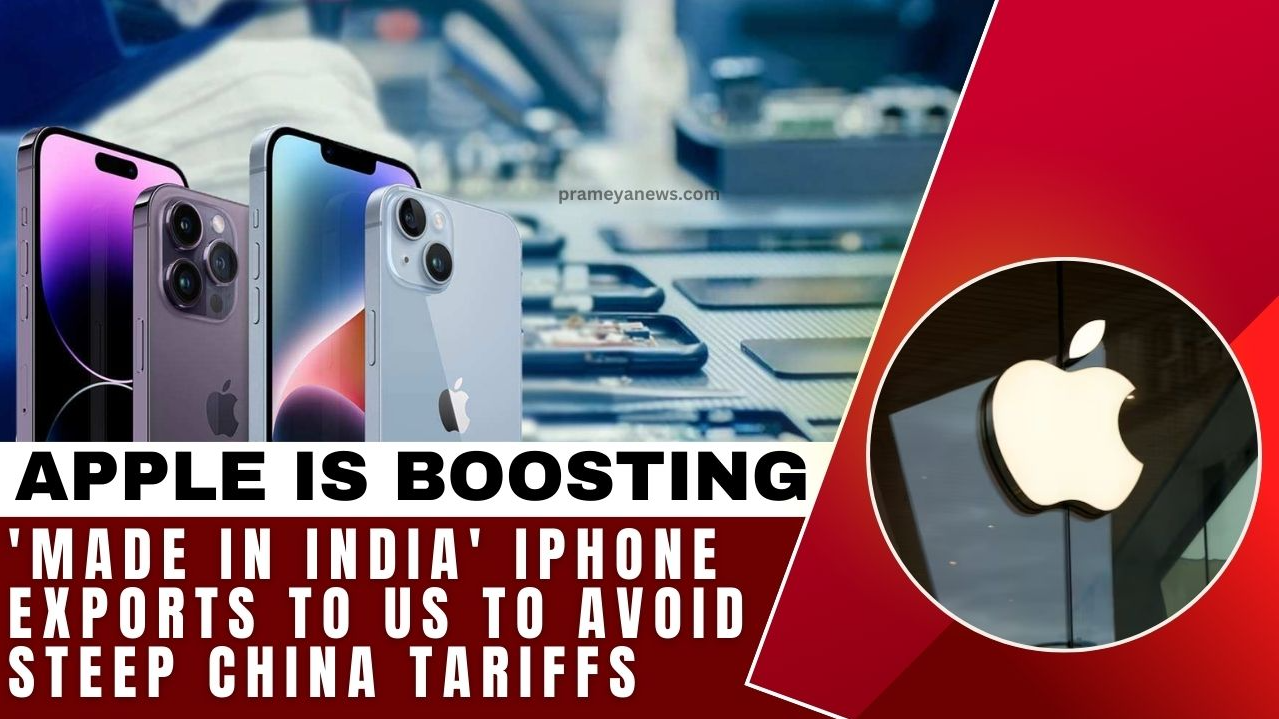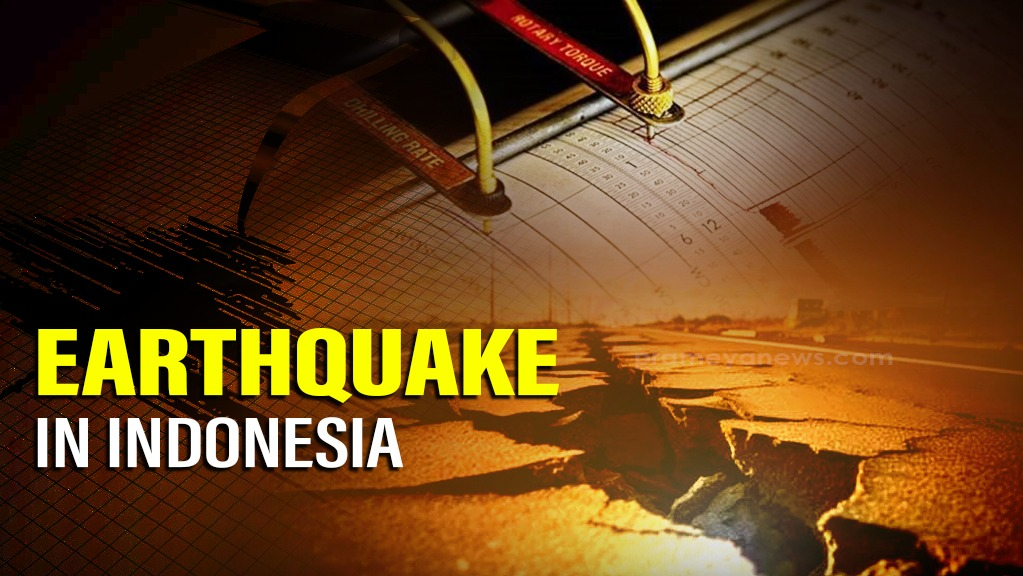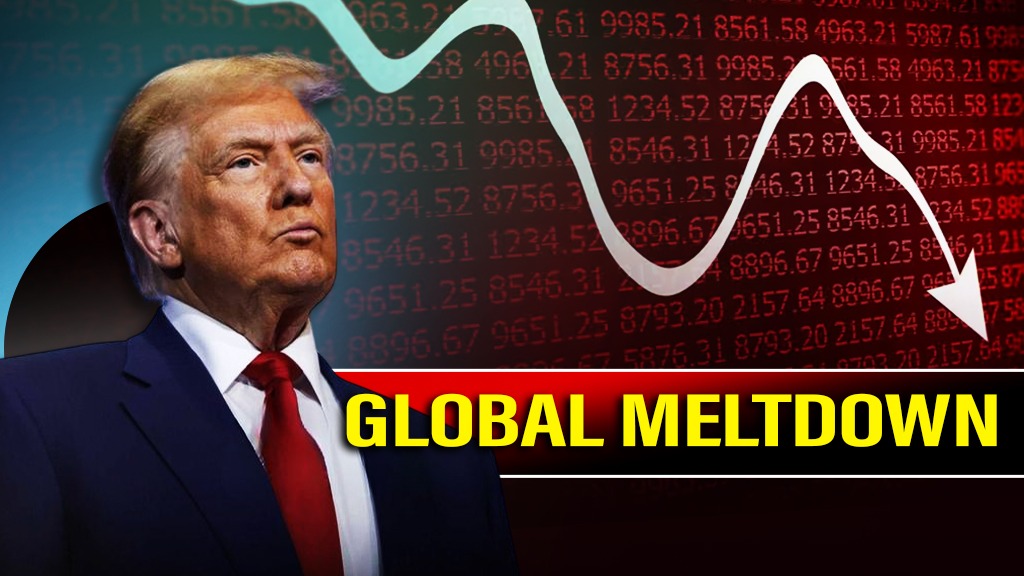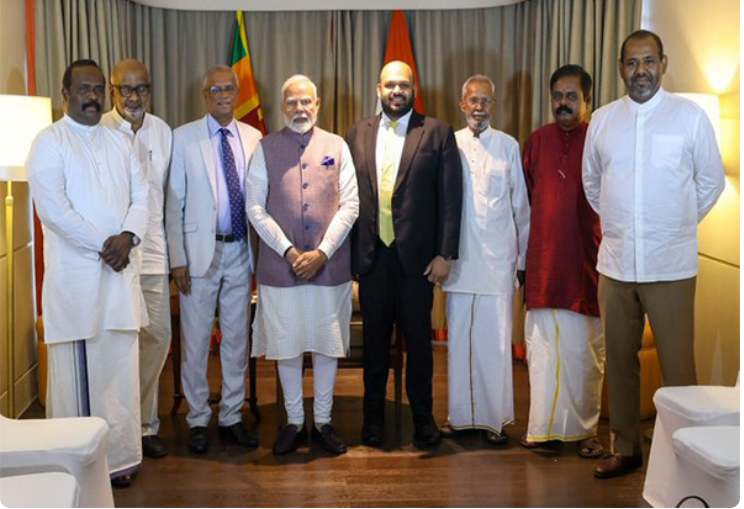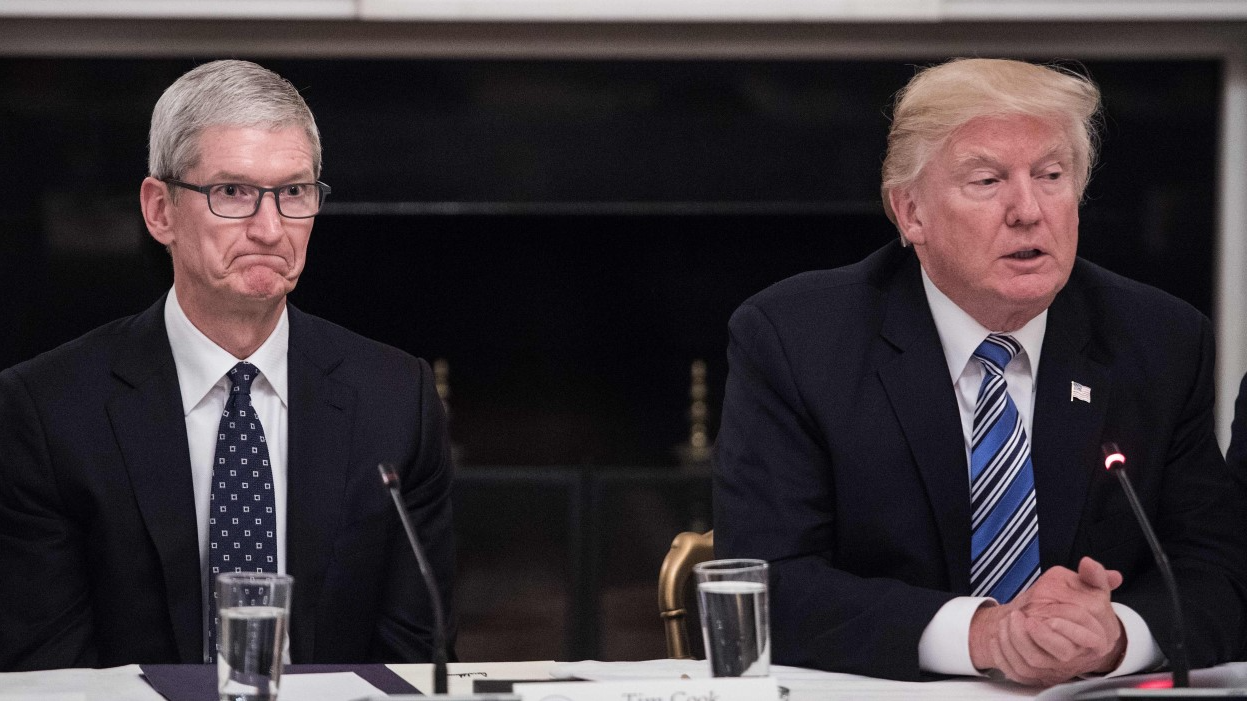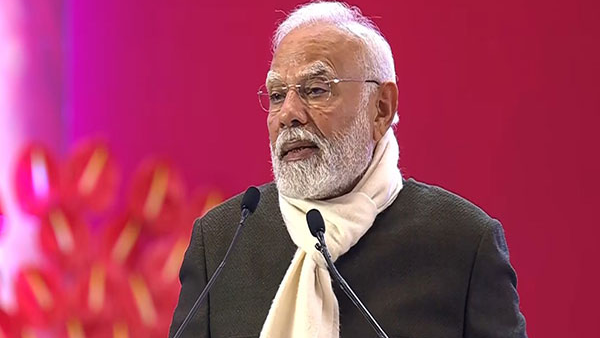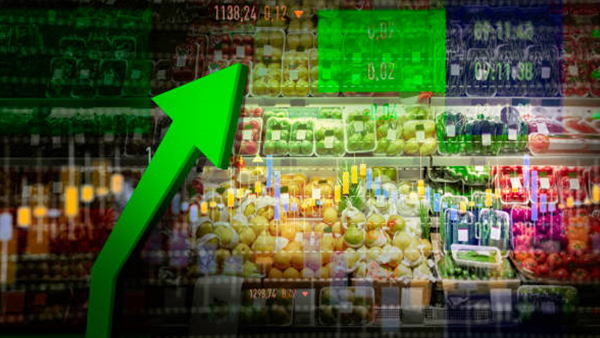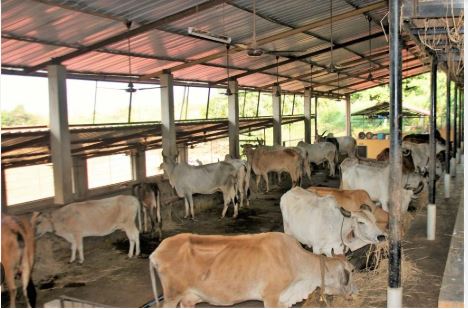Beijing: China's Premier Li Qiang has expressed unwavering confidence in his country's economic resilience, stating that China possesses "ample policy tools" to counteract the effects of President Donald Trump's newly imposed 104% tariffs across all Chinese imports. These comments come at a critical moment as the U.S.-China trade relationship enters what many analysts describe as its most volatile phase in decades.
Speaking during a diplomatic call with European Commission President Ursula Von der Leyen on Tuesday, Li maintained an optimistic outlook regarding China's economic prospects for 2025. According to the official readout of the conversation, Li emphasized that China's macroeconomic policies had been strategically formulated with various uncertainties in mind, positioning the country to withstand external pressures.
"China is strongly confident about maintaining the country's healthy and sustainable economic growth," declared Li, who ranks as China's second most powerful official after President Xi Jinping. This confidence comes despite what many economic experts characterize as potentially devastating tariffs set to take effect at 12:01 AM on April 9.
The timing of the call between Li and Von der Leyen proved significant, occurring just hours before both China and Europe were scheduled to face Trump's self-described "reciprocal tariffs." While European exports to the United States will encounter a substantial 20% levy, Chinese goods face a staggering 104% surtax. A U.S. official confirmed to Bloomberg on Tuesday that the administration was proceeding with the planned tariff implementation without modification.
During the conversation, Li reportedly condemned the U.S. actions as "a typical example of unilateralism, protectionism and economic coercion." He further stated that China's forthcoming firm response would serve not only to protect Chinese interests but also to defend established international trade rules and norms.
"Protectionism leads nowhere — openness and cooperation are the right path for all," Li told Von der Leyen, emphasizing China's commitment to maintaining an open global economic system despite growing tensions.
China's Potential Retaliation
The Chinese government has officially pledged to implement countermeasures against Washington's trade actions. Providing potential insight into Beijing's strategy, two influential Chinese social media personalities simultaneously posted identical lists of measures reportedly under consideration by Chinese authorities. These potential retaliatory actions include targeted duties on American agricultural products and a complete ban on Hollywood movies in the Chinese market—a move that would significantly impact the U.S. entertainment industry, which relies heavily on Chinese box office revenue.
Meanwhile in Washington, Trump projected confidence regarding the situation, claiming that "China also wants to make a deal, badly," and suggesting he was waiting for Beijing to initiate communication. White House Press Secretary Karoline Leavitt later stated during a press conference that the president "will be gracious" should Chinese leadership reach out for negotiations.
Market Turmoil
The escalating trade tensions triggered extraordinary volatility in U.S. financial markets on Tuesday. Wall Street experienced what analysts described as a "stunning reversal," with the S&P 500 initially surging 4.1%—what would have been its strongest single-day performance in years—before rapidly surrendering all gains and plummeting to a 3% loss. By closing, the index had recovered slightly to finish down 1.6%, positioning it nearly 19% below its February record high.
This market instability reflects widespread investor uncertainty regarding the economic implications of Trump's aggressive trade policies, which many economists warn could disrupt global supply chains, accelerate inflation, and potentially trigger a broader economic slowdown across multiple regions.
The implementation of the 104% tariff represents a dramatic escalation from previous trade actions, dwarfing the tariff rates imposed during Trump's first administration. Economic analysts predict these measures could significantly increase costs for American consumers on numerous products while simultaneously restricting Chinese access to U.S. technologies and markets.
Global Economic Implications
The trade conflict extends beyond bilateral U.S.-China relations, with European nations now also facing substantial tariffs on their exports to the United States. This creates what some international trade experts describe as a "three-dimensional chess game" of economic diplomacy, with major powers simultaneously competing and seeking alliances to mitigate economic damage.
For China specifically, Li's comments suggest a multi-pronged approach to handling the situation: maintaining domestic economic stability through policy interventions while simultaneously building international coalitions against what Beijing characterizes as American protectionism.
Economic observers note that China has indeed implemented various stimulus measures throughout 2024, including interest rate reductions, increased infrastructure spending, and targeted support for key industries. These actions appear designed to insulate the domestic economy from external shocks, lending credibility to Li's assertion of preparedness.
As global markets adjust to this new trade reality, attention now focuses on the specific countermeasures China will implement and whether diplomatic channels might produce a de-escalation before the most severe economic impacts materialize. With President Trump claiming China "wants to make a deal" while simultaneously imposing punitive tariffs, the path forward remains highly uncertain.
What seems clear, however, is that both economic superpowers are signaling their willingness to endure short-term economic pain in pursuit of longer-term strategic advantages, creating what may become a protracted period of economic tension with worldwide implications.







